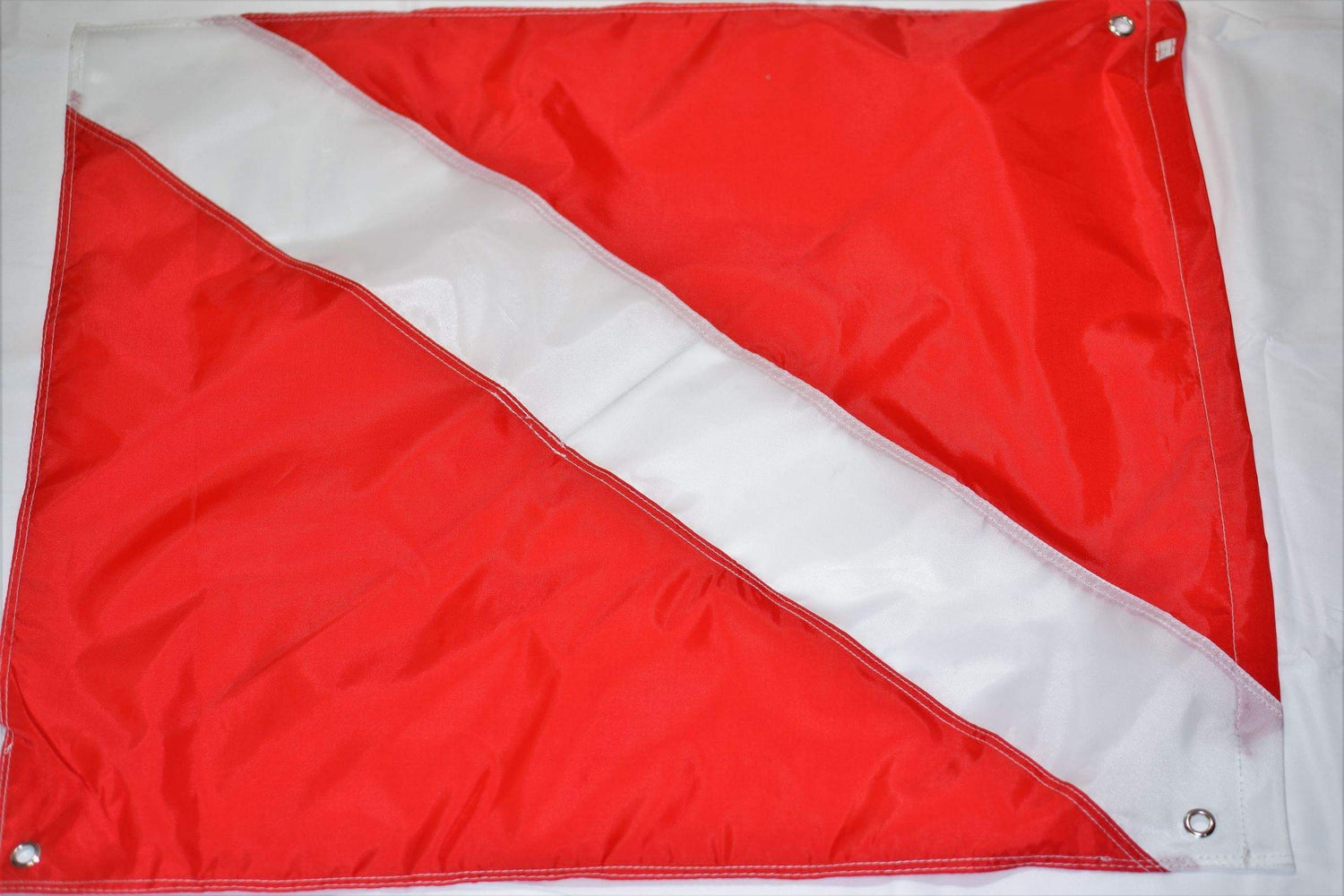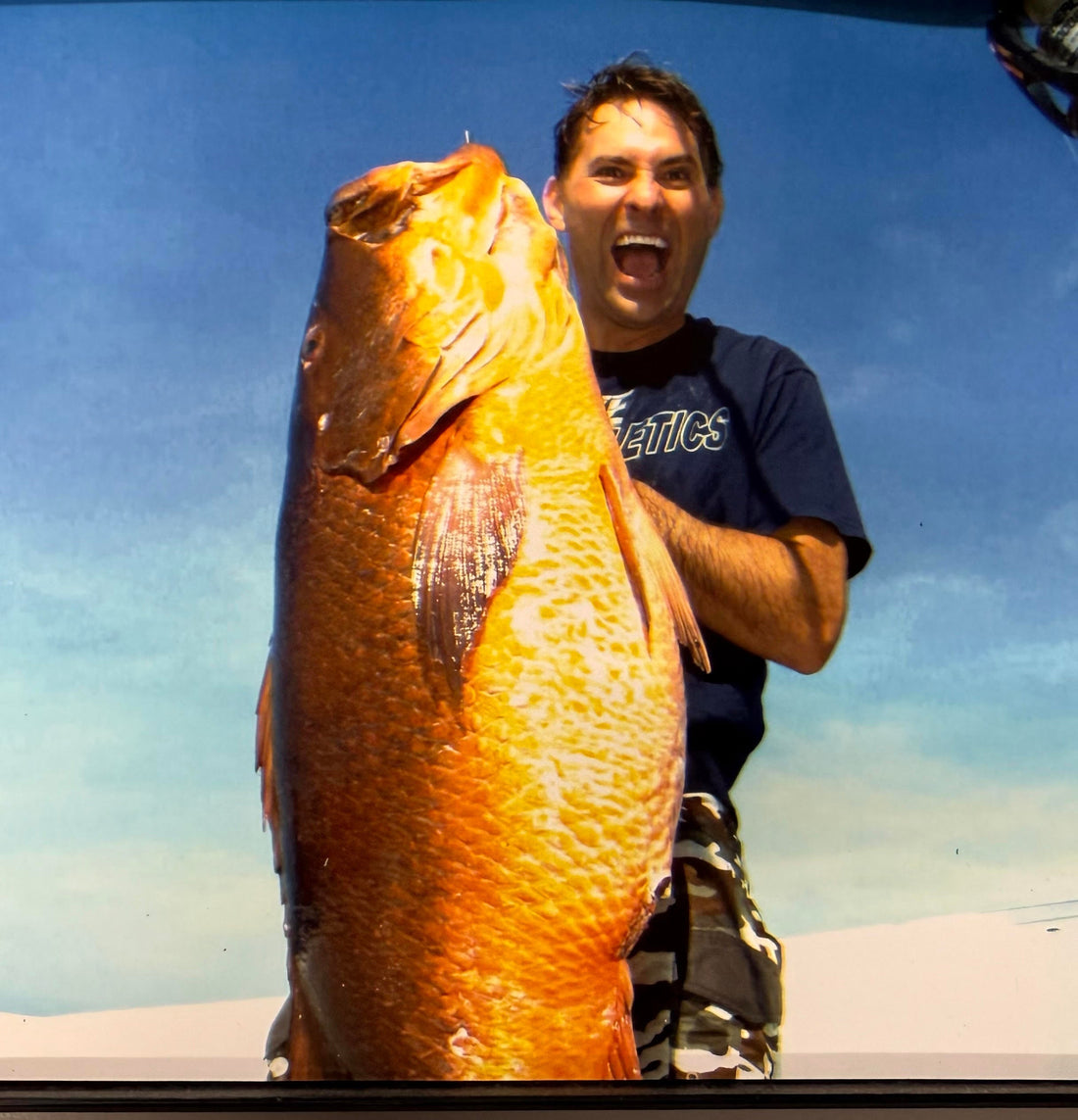Tune up for the big one!
Shooting big fish is a combination of skill, preparation and opportunity.
SKILL:
Learning skills such as fish ID is super important as big fish rarely hang out for long! You must recognize a target and get in hunting mode in mere seconds before a big fish recognizes you as a threat and bolts to safety. It’s important to recognize small details like species/size and make a quick determination whether to shoot or not.
A great example is big Black Grouper (BBG). BBG will often hang out in schools of Goliath grouper and take on a similar color pattern, especially at depth. The difference to recognize quickly is that BBG have a flat (square tail) while Goliath grouper have a round tail.
Learning how to get close to big fish is a skill that is not easily mastered. Slow, smooth movements, avoiding direct eye contact and angle of approach can all be factors in getting close enough for a successful shot.
Once we have identified our target and closed the gap enough for a successful shot, you must take a high percentage shot that’s going to severely damage or hopefully incapacitate the target. This means hitting the central nervous system. Poor shots on big fish often result in lost opportunities so always think spine and/or skull. Aim small, miss small!
PREPARATION:
Many divers are unsuccessful when they get the rare opportunity of a trophy fish because they failed in the preparation aspect.
Top shooters and successful tournament competitors pay attention to the details because they know that a nick in your shooting line or weak/damaged bands can, and often does, result in missed opportunities.
Several days before your trip you need to check all your gear and make sure your spears are sharp, the flopper works properly, and the shafts are straight. Make sure your speargun mechanism isn’t corroded, the gun isn't warped or damaged and everything is working properly. A good habit to do once a year on wood guns is to tighten and check all the screws. If any screws don't tighten properly it means the wood is starting to deteriorate and the gun may be unsafe.
It’s very important to go over all of your gear to make sure there won't be problems. Does your mask leak? Is the strap, ok? Are your fins in good shape? Are the foot pockets torn or straps worn out? Gloves full of holes? Is your Snorkel or mouthpiece in good shape? Any cracks in the blades? Make sure flashlights are working properly, have fresh batteries and grease on the O-rings, and don’t show signs of leaking. Make sure drags are working properly if using a reel on your gun and check terminal connections if using floatlines. Check muzzle bungees for wear and replace as needed.
Many items on a speargun are considered consumables and generally only last a single season. Especially bands! Bands may seem like they are still tight but after using them for a while they get micro-tears that result in much less contraction or “snap”. One commercial spearfisherman we know replaces his bands before every trip and swears it makes a huge difference!
OPPORTUNITY:
Opportunity only occurs when you’re in the water! Dive often and don’t be afraid to explore new areas or potential new spots. Learn to properly read your bottom machine. Find out what “second echo” means and adjust your machine to see it in order to better read hard bottom that others pass over.
Make sure to look really deep into caves and even small holes. Big fish are truly masters of getting inside places you wouldn’t think they could fit and camouflaging themselves to look like their background! Check out the edges of a spot and the perimeter of a wreck or school of fish. Chumming and good flashers are great ways to attract big fish! Using a fish’s natural curiosity and hunger against them is a technique that often results in success.
One famous spearo often uses throw flashers on the reef. He drops the flasher from the surface and lets it sink to the bottom. Fish that have been hiding in the reef will sometimes come out and stare at the shiny device sitting on the bottom. He then dives down and whacks the fish that is preoccupied with the flasher.
sometimes come out and stare at the shiny device sitting on the bottom. He then dives down and whacks the fish that is preoccupied with the flasher.
Finally… remember that big fish don’t generally get big by accident. They are usually smarter and more cautious than smaller fish. They are exponentially more powerful and require a lot more attention to detail in order to pull off a successful hunt.
Good luck and dive safe!



